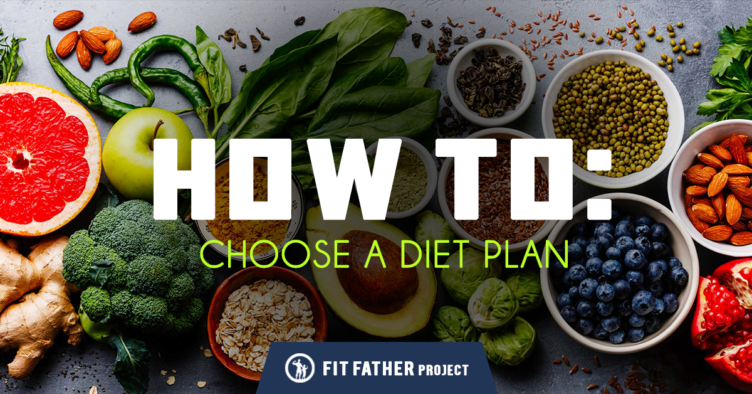Discover the Top 5 Free Crypto Airdrops in 2023
August 14, 2023
2024 Crypto Bull Run: Top Meme Coins to Consider
July 18, 2024Weight loss or Losing weight can be a challenging journey, but selecting the right weight-loss program can make it easier. With so many options available, it can be difficult to know where to start. Here are some things to consider when choosing a weight-loss program.
Talk to Your Health Care Provider
Before starting any weight-loss program, it is important to talk to your health care provider. They can help you determine if you are healthy enough to start a weight-loss program and provide guidance on what approach may be best for you.
Consider Your Preferences, Budget, and Other Factors
When selecting a weight-loss program, consider your preferences, budget, and other factors. For example, if you enjoy cooking, a program that includes meal planning and preparation may be a good fit. If you have a limited budget, a program that requires expensive supplements or meals may not be sustainable.

Ask Questions About the Program’s Features, Risks, and Results
It is important to ask questions about the program’s features, risks, and results before committing to it. Some questions to consider include:
What is the program’s approach to weight loss?
What are the program’s success rates?
What are the potential risks or side effects?
What support is provided throughout the program?
Weight-Loss Goals and Methods
When it comes to weight loss, slow and steady wins the race. A long-term commitment to healthy lifestyle changes in eating, exercise, and behavior is key. Fad diets that promise fast and amazing weight loss may result in short-term success but are rarely sustainable.
Types of Weight-Loss Diets
A multitude of diets have emerged, each with its own unique approach and principles. These diets cater to diverse preferences, metabolic profiles, and health goals. Let’s delve into some of the most prevalent types of weight-loss diets, exploring their underlying philosophies and potential benefits.
- Low-Carb Diets: One of the most notable diet trends, low-carb diets emphasize minimizing carbohydrate intake, which includes sugars and starchy foods. These diets induce a shift in the body’s metabolism, promoting the utilization of stored fat as an energy source. Famous examples include the Atkins Diet and the ketogenic diet, where carbohydrate consumption is significantly restricted, and fat intake is elevated.
- Low-Fat Diets: Contrasting with low-carb diets, low-fat diets advocate for reducing dietary fat intake while emphasizing consumption of carbohydrates and lean proteins. The objective is to lower overall calorie intake and promote a caloric deficit, facilitating weight loss. Popularized by diets like the Ornish Diet and the Pritikin Diet, this approach can also have cardiovascular benefits if the fats being avoided are primarily saturated and trans fats.
- Mediterranean Diet: Drawing inspiration from the dietary patterns of countries bordering the Mediterranean Sea, this diet focuses on wholesome foods such as fruits, vegetables, whole grains, legumes, lean proteins, and healthy fats (like olive oil and nuts). Rich in antioxidants and healthy fats, this diet is associated with reduced risk of chronic diseases, and its emphasis on whole foods can contribute to sustainable weight loss.
- Vegetarian and Vegan Diets: Vegetarian diets exclude meat, while vegan diets take this a step further by avoiding all animal products. These diets are often chosen for ethical, environmental, and health reasons. Properly planned vegetarian and vegan diets can be nutrient-dense and support weight loss due to their emphasis on plant-based foods, high fiber content, and reduced consumption of high-calorie animal fats.
- Paleo Diet: Inspired by the presumed dietary habits of early humans during the Paleolithic era, the Paleo diet promotes whole foods such as lean meats, fish, fruits, vegetables, nuts, and seeds while excluding processed foods, grains, and dairy products. Advocates argue that this diet aligns with our evolutionary history and can lead to weight loss by focusing on nutrient-dense, natural foods.
- Intermittent Fasting: Rather than dictating specific foods, intermittent fasting concentrates on when to eat. This approach alternates between periods of eating and fasting, with common methods including the 16/8 method (16 hours of fasting, 8-hour eating window) or the 5:2 method (normal eating for five days, restricted calorie intake for two non-consecutive days). Intermittent fasting can help control calorie intake and enhance metabolic flexibility.
- Plant-Based Whole Food Diets: These diets prioritize unprocessed plant foods, avoiding not only animal products but also refined grains, added sugars, and highly processed foods. By focusing on whole, nutrient-rich plant foods, these diets can support weight loss and improve overall health.
:max_bytes(150000):strip_icc()/article_7866255_foods-you-should-eat-every-week-to-lose-weight_-04-d58e9c481bce4a29b47295baade4072d.jpg)
While many weight-loss diets yield short-term results, the key to long-term success lies in choosing a diet that aligns with your preferences, lifestyle, and nutritional needs. It’s important to consult with a healthcare professional or registered dietitian before making significant dietary changes, especially if you have underlying health conditions. Remember that a sustainable weight-loss journey involves balanced eating, regular physical activity, and a holistic approach to overall well-being.
Finding a Plan You Can Stick To
The most important factor in any weight-loss program is finding a plan that you can enjoy and adapt to your situation. It is also important to remember that you need to be careful about your weight even after you lose it. A healthier diet and more activity are the best ways to lose weight and keep it off.
In conclusion, choosing a weight-loss program requires careful consideration of your individual needs and preferences. Talking to your health care provider, considering your budget and other factors, asking questions about the program’s features and results, and finding a plan that you can stick to are all important steps in achieving your weight-loss goals. Remember that slow and steady progress is key, and focusing on long-term healthy lifestyle changes is the best way to achieve lasting success.





